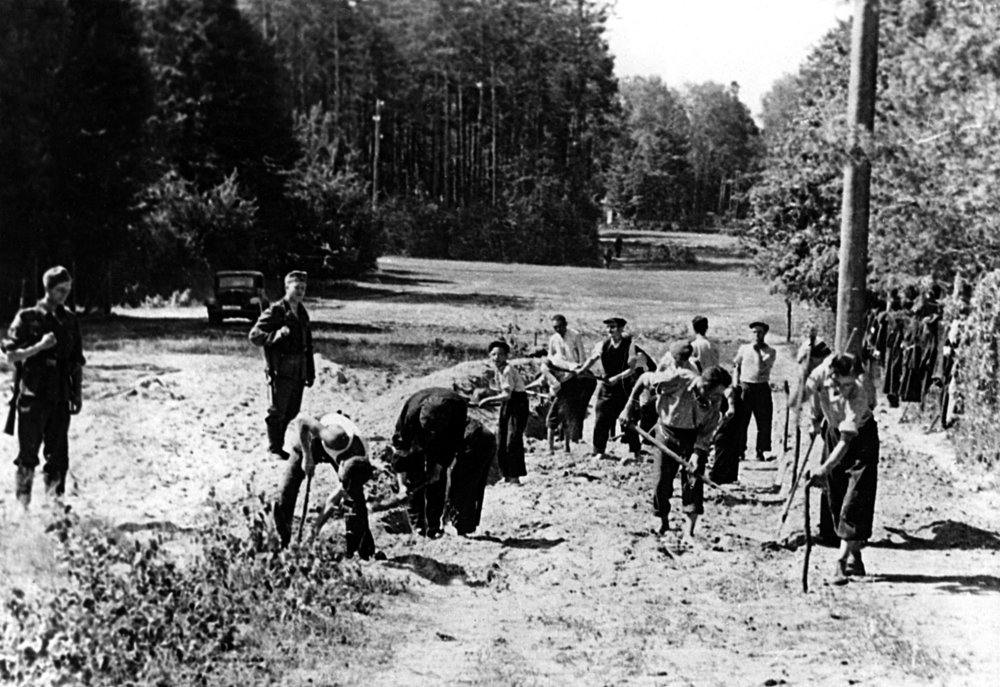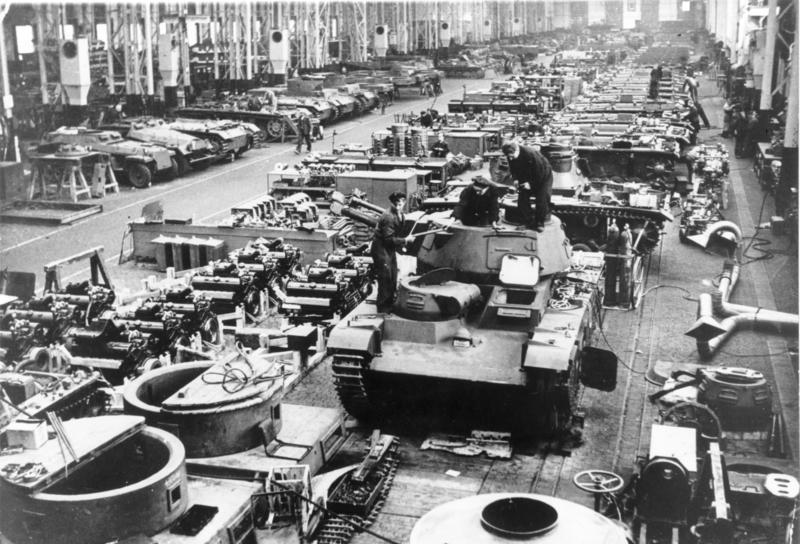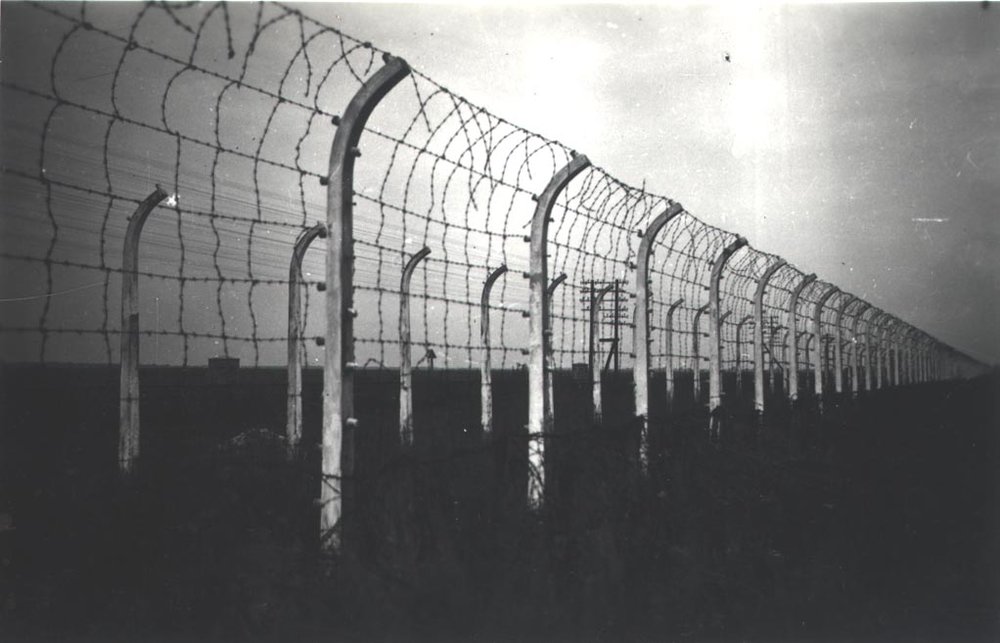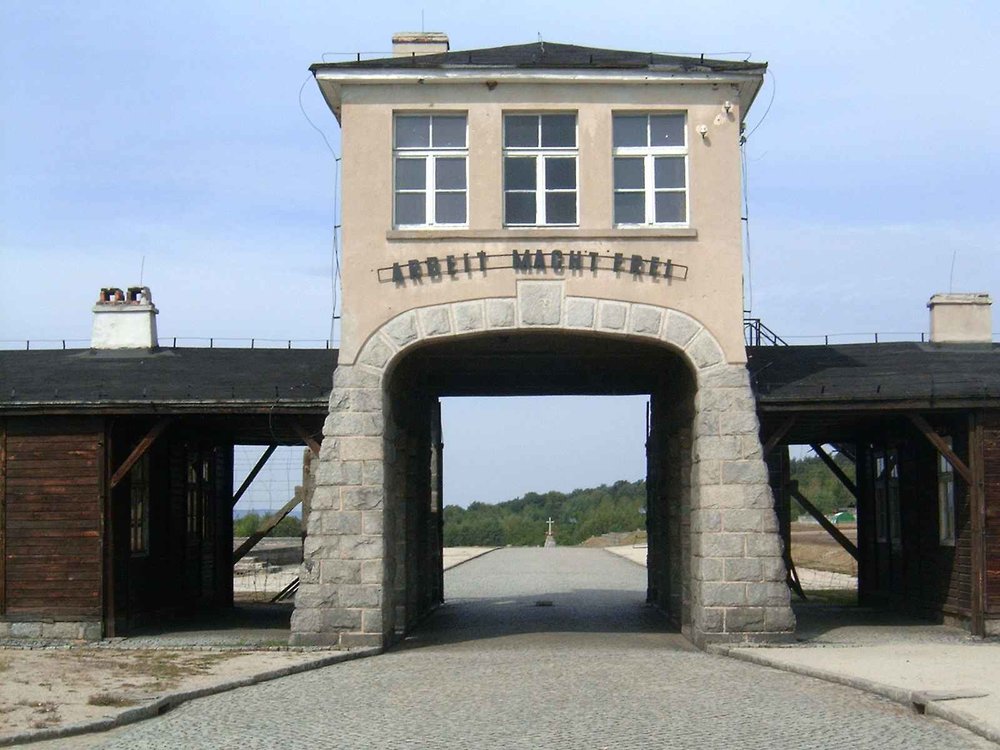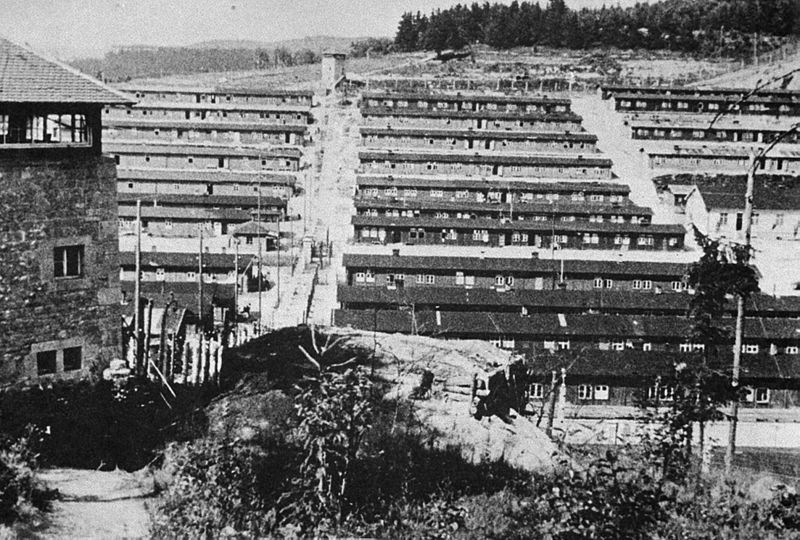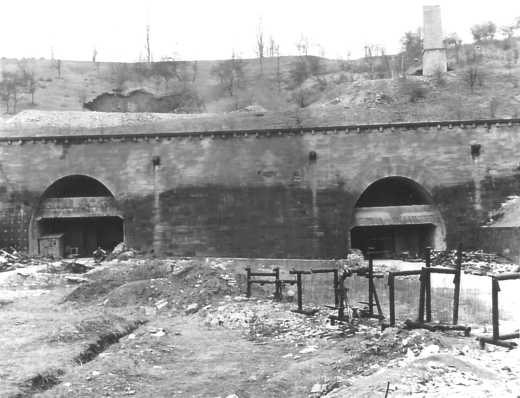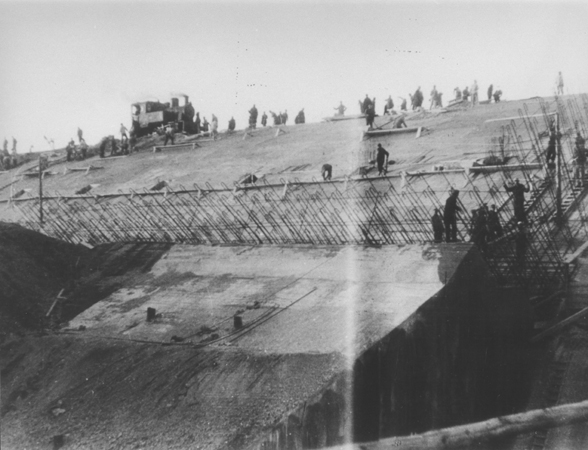EXCERPT FROM THE LONG NIGHT
Leonberg
“So the days dragged by until mid-April 1945. One morning just after we had returned from the nightshift we had to wait for longer than usual on the Appellplatz. After being counted several times they gave us 200 grams of bread and then we were ordered to leave the camp. It was said that the camp was to be evacuated, but where did they want us to go? We had no idea. For many it was their final journey. We marched towards Stuttgart. Long before we reached the town I threw away the blanket that always kept me warm because I was too weak to carry it any more. Those of us who sat by the roadside were shot. A little later I also had to abandon the coat I had received from a dying man because I couldn’t carry it any more – a beautiful warm coat that in earlier times was only worn by camp prisoners of the highest rank. I was on my last legs when we arrived in Stuttgart. We marched in the town past ruins.”
… “The look on the faces of people in the street was also different: gone were the contemptuous looks which we had experienced until now; instead partly thoughtful, partly sad and serious, sometimes even compassionate. We felt encouraged and strengthened by all this, and this gave us the strength to continue marching to a suburb of Stuttgart where it was intended to load us onto goods wagons. Once we arrived at the station we heard the usual screams of the SS guards to which we had grown so accustomed, and shoved us into the wagons using their rifle butts. A hundred inmates were squeezed into each wagon. We had to sit on the floor with our legs apart. When the wagons were full some tried to stand up but were unable to remain upright for very long. They were so weak they were soon compelled to fight again for space on the floor. There was absolutely nothing for us to eat or drink. The doors were not completely shut; two SS guards were posted at the opening. Then everything in accordance with our past experience: no space and no bucket for us to attend to calls of nature; the sick and the weak, especially those suffering from dysentery, could not keep anything in and were pushed by those who had the strength into a corner of the wagon. The atmosphere in the wagon became very stressful as it became apparent there was little chance or hope we would survive.”
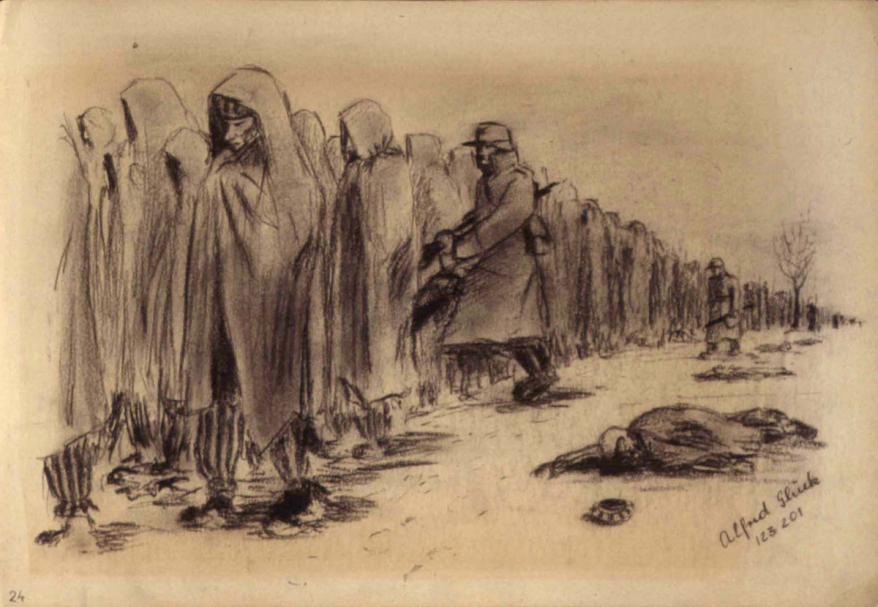
Israel Alfred Glück (1921-2007). The Death March. From the album My Holocaust, Bergen-Belsen DP Camp, 1945. Charcoal on paper [Yad Vashem]

